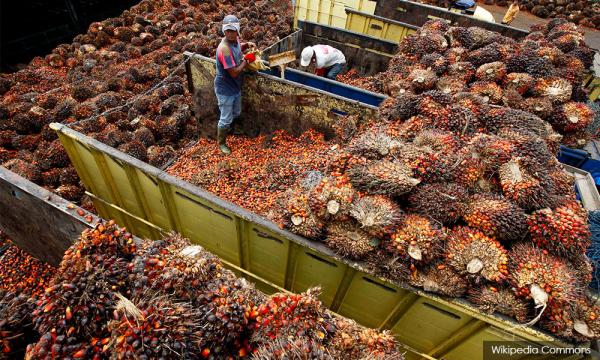Palm Oil Refiners Association of Malaysia (PORAM) was established in 1975. Over the years, PORAM specifications have become standard for palm oil trade globally. Yet to most Malaysians, PORAM's role in safeguarding the nation's palm oil product quality remains completely unknown.
Newly appointed PORAM Chairman Jamil Haron (term: 2019-2021) wants to change that.
"No one is highlighting what PORAM is doing. PORAM has been doing fantastic things," he exclaims.
Improving the image of Malaysia's palm oil industry
Jamil stresses that is it vital for the industry to improve its image, especially given the relentless anti-palm oil campaigning from the West. Central to that is the dissemination of information to counter the allegations that palm oil is bad for health and that its cultivation harms the environment.
"We need to improve our image. We have to prove to the world that we are doing something," he says.
As part of the concerted efforts to raise the industry's image, he believes PORAM needs to be more vocal on what it has been doing, strengthen its own public image and visibility, and increase its promotion activities.
"The whole supply chain has to work together to improve the image of palm oil," Jamil stresses.
PORAM specs a global standard
PORAM has been playing a huge role in regulating the quality of Malaysian palm oil products. Back in the 1970s when the industry was still in its infancy, PORAM "started the ball rolling". It formulated the contracts, the specifications and the arbitration rules for palm oil trade that are today widely used globally, says Jamil.
"PORAM has formulated 10 contracts; I was surprised when I found out, honestly. 10 contracts that are internationally recognised. Do you know that if there's an enquiry about processed palm oil, anywhere in the world, they would just say 'PORAM specs'?" Jamil says.
"We formulated a number of specifications for different types of palm oil products. Let's say someone wants to buy a certain type of refined palm oil product, say refined, bleached and deodorised (RBD) palm oil, all they need to say is "as per PORAM specifications". That means when I sell to you RBD palm oil, I don't have to list out the specifications in detail -- the fatty acid, the moisture, impurities content etc. All I need to put in the contract is 'as per PORAM specifications' and it's understood by both parties," explains PORAM CEO Teoh Beng Chuan.
Due to the wide use of PORAM contracts, PORAM is also the defacto arbitrator in event of disputes between palm oil buyer and seller, even if neither party hails from Malaysia.
"PORAM contracts have a clause stating that in the event of a dispute, the parties have to come to PORAM for arbitration. It could an Indonesian buyer and Indonesian seller, or an Indonesian seller and buyer from India... if they use a PORAM contract, they will have to come back to us for arbitration before the case goes to court," Teoh explains.
PORAM has managed 423 arbitration cases to date. It has complied some of the case studies in book form as reference material.
PORAM represents at least 90% of Malaysia's refining industry, of which small players account for about 10%. It organises various activities including three to four seminars/workshops annually on topics that concern refiners such as the refining process, shipping and insurance, surveying, and dispute and arbitration.


